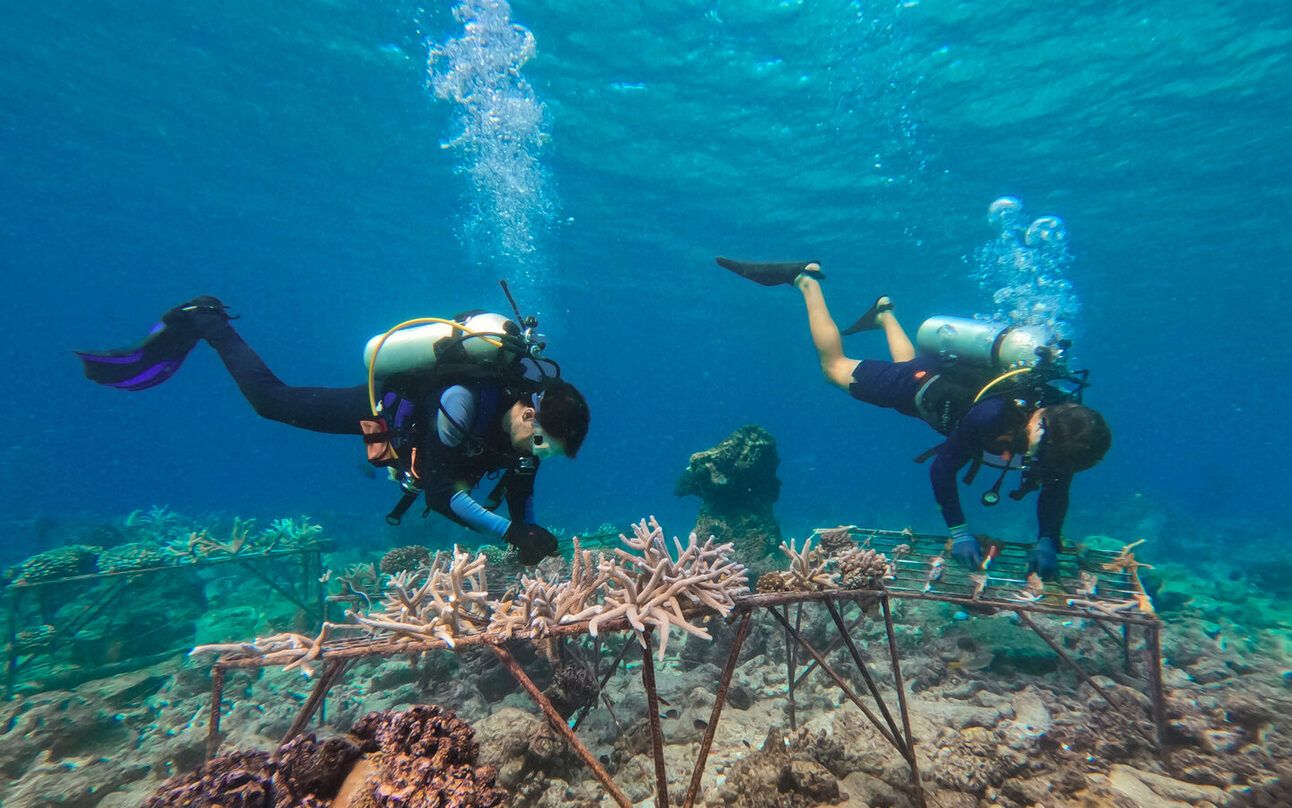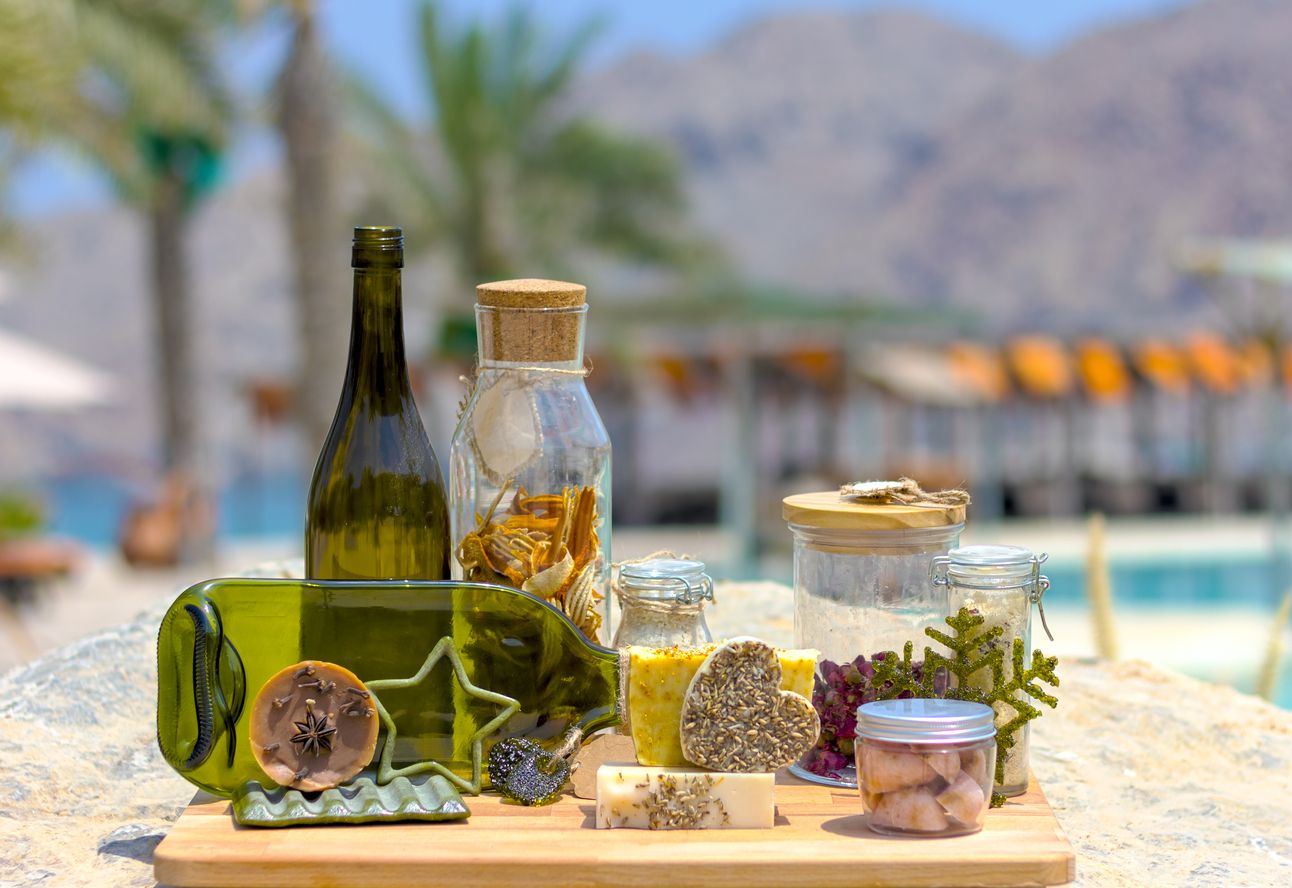- Asia Sustainable Travel
- Posts
- How Can Asia’s Tourism Fight Climate Change? Six New Year’s Resolutions for Your 2025 Climate Action Plan
How Can Asia’s Tourism Fight Climate Change? Six New Year’s Resolutions for Your 2025 Climate Action Plan

Hello friend,
We hope you are feeling recharged to continue to take more climate actions for the year ahead.
As leaders in Asia’s booming travel and hospitality sector, your ability to drive climate-conscious initiatives will set the tone for sustainable tourism in the region.
From reducing single-use plastics to leveraging cutting-edge cooling technology, today’s newsletter offers you six ideas to fortify your climate action plan for 2025.
If this newsletter was forwarded to you, please subscribe here.
Please share this newsletter with your friends so they can gain access to valuable content. We plant a tree to welcome every new subscriber through our partnership with OneSeed.

How Can Asia’s Tourism Fight Climate Change? Six New Year’s Resolutions for Your 2025 Climate Action Plan
Climate action thrives when everyone plays a part as it’s more powerful and lasting than depending on a handful of highly dedicated individuals and companies.
If 100 people each do 10% more in climate action, sustainability becomes part of everyday life. It will spark bigger change and strengthen our collective resilience.
When more people get involved, it pushes cultural and policy shifts forward while preventing burnout and keeping momentum going.
There are also many things you can do to significantly reduce your company’s environmental impact and adapt to climate change.
Asia Sustainable Travel has an extensive list of articles to supercharge your company’s sustainability transition depending on your budget and level of commitment.
In a nutshell, here are six resolutions to add to your 2025 climate action plan.
1. Accelerate Your Plastic-Free Initiatives
Difficulty Level: Easy
Impact Scale: Moderate
Plastic pollution is a pressing issue in most of Asia’s travel destinations. Cities, towns, and villages, particularly those close to water bodies, are already experiencing significant environmental toll.
Thailand banned single-use plastics in national parks starting in 2022, targeting pollution in popular tourist areas.
Singapore’s Zero Waste Masterplan aims to reduce the country’s waste by 30% by 2030.
Actions:
Partner with local suppliers to provide eco-friendly amenities.
Swap out plastic water bottles for refill stations.
Introduce reusable utensils in hotel dining facilities.
Roll out training programs for staff to encourage reuse and recycling practices.
Additional Resources:
Read this AST article to learn how to apply circularity to keep plastics out of landfills, and support plastic credits to remove legacy plastics to slow down biodiversity loss.
Check out this Six Senses’ Journey to Plastic Freedom Playbook with 82 tried and tested solutions.
2. Elevate Plant-Based Culinary Experiences
Difficulty Level: Easy
Impact Scale: Moderate to High
Asia’s rich culinary heritage offers abundant plant-based alternatives that naturally have a low impact on our climate and ecosystem. Tofu, tempeh, and jackfruit are not only delicious but significantly lower in carbon emissions compared to beef.
Actions:
Start small by incorporating one plant-based alternative into your menu for popular dishes and gradually expand.
Experiment with locally sourced seasonal ingredients to create mouthwatering plant-based adaptations of well-known dishes like laksa or gyoza.
Offer complimentary tastings for guests to entice hesitant diners.
Market these options as both healthy and eco-conscious, attracting sustainability-focused guests.
Additional Resources:
Read this AST article to learn why opting for less meat, even if locally sourced, proves more beneficial than meat-centric choices.
Check out how InterContinental Phuket Resort works with WWF to turn invasive species into an unforgettable culinary experience.
3. Cool Smarter, Not Harder
Difficulty Level: Moderate
Impact Scale: Moderate to High
As the earth continues to warm, air conditioning alone is an unsustainable solution. Asia is seeing a growing adoption of green cooling technologies, from Singapore’s Green Mark Super Low Energy Certification to the region’s hotels harnessing a biophilic design philosophy.
Action:
Reduce energy consumption before switching to renewable energy sources, for example, installing passive cooling methods like rooftop gardens and shaded courtyards.
Apply the Sustainable Hospitality Alliance’s 12 steps to reduce energy bills.
Additional resources:
Read this AST article to learn how to conduct an energy consumption audit to identify areas of high energy consumption and suitable approaches for implementing renewable energy solutions.
4. Mindfully Promote EV Adoption for Tourism
Difficulty Level: Easy to Moderate
Impact Scale: Moderate to High
With China leading the world in EV production, Japan’s recent launch of electric bus fleets in major urban areas, and Vietnam’s rising adoption of EVs spearheaded by homegrown brand Vinfast, travel service operators have plentiful opportunities to incorporate carbon-emission-free vehicles into their guest itineraries.
Action:
Use electric tour buses and shuttle services to reduce transport emissions for guests while actively looking for ways to incorporate mass transit transportation such as trains whenever possible.
Offer guests options like electric tuk-tuks or e-scooters to explore local communities sustainably.
Additional Resources:
However, go deeper into why we cannot effectively address the climate crisis by solely increasing mining activities to power the production of EVs. We need to look beyond resource replacement and reduce consumption overall.

Varana in Krabi, Thailand transforms iconic tuk-tuks from combustion to electric engines. Photo by AST.
5. Build a Climate-Resilient Brand
Difficulty Level: Easy to Moderate
Impact Scale: High
With Southeast Asia facing rising sea levels, extreme weather, and biodiversity loss, hospitality brands must proactively build resilience into their operations. In the Maldives, Soneva Fushi leads with mangrove restoration and coral propagation to protect against erosion and safeguard marine ecosystems critical to tourism. Indonesia's Bambu Indah and Sri Lanka’s Panchabhuta Retreat incorporated nature-based architecture and water recycling to mitigate drought risks.
Actions:
Nature-Based Solutions: Plant mangroves or rehabilitate coral reefs to build natural defenses against erosion and flooding.
Water Recycling: Install water recycling systems for landscaping or daily operations.
Eco-Friendly Architecture: Use locally sourced, sustainable materials and design properties to withstand climate threats like monsoon-related flooding.
Additional resources:
However, true climate resilience requires addressing more than just structural solutions. Hospitality brands must engage in climate risk assessments, diversify supply chains, and advocate for broader policy shifts that limit construction in ecologically sensitive areas. Check out The Datai Pledge Fund Impact Report to understand how the resort rewilds its surroundings to build adaptation to climate change.

The Soneva Foundation Coral Restoration supports UN’s SDG no.14 to conserve and sustainably use the oceans and marine resources for sustainable development. Photo by Soneva.
6. Create Low-Carbon Travel Tours
Difficulty Level: Moderate
Impact Scale: Moderate to High
With eco-conscious travel on the rise, more Asian travelers are seeking experiences that reflect their values, favoring low-carbon and sustainable options. However, many struggle to find offerings that meet their expectations, with limited variety available, according to a Kantar survey.
Actions:
Develop packages that replace short-haul flights with scenic rail journeys or electric transport options where feasible.
Collaborate with local communities to offer immersive, low-impact activities such as guided hikes, cultural workshops, and farm-to-table dining experiences.
Additional Resources:
The good sign is that a growing number of climate-conscious travel operators have been seeing growing reception from travelers.
Learn about the Thai Ecotourism and Adventure Travel Association’s Carbon-Neutral Tours, consisting of 100+ inspiring tours designed to reduce carbon emissions and offset the rest.
Check out Regenerative Travel-awarded Kumano Adventures, which exemplifies this by offering multi-day walking tours centered on slow travel, reducing transportation emissions while immersing guests in local culture and empowering residents to preserve their cultural heritage.
Receive Honest News Today
Join over 4 million Americans who start their day with 1440 – your daily digest for unbiased, fact-centric news. From politics to sports, we cover it all by analyzing over 100 sources. Our concise, 5-minute read lands in your inbox each morning at no cost. Experience news without the noise; let 1440 help you make up your own mind. Sign up now and invite your friends and family to be part of the informed.

What is your sustainability priority (ies) for 2025?
Be sure to check out AST Directory of Sustainability Solution Providers, a go-to resource for travel and hospitality businesses seeking trusted partners to turn their sustainability ambition into reality.
Join the Conversation: Let’s Feature Your Sustainability Story!
AST will continue to be a platform that spotlights changemakers as well as hospitality and travel companies shaping the future of sustainable tourism in Asia and beyond.
In 2025, we’re excited to do something slightly different. We’ll be delving deeper into technical solutions to offer more actionable ‘how-to’ content that highlights the tools, resources, and organizations to help you accelerate your sustainability journey.
Do you have a story that you want to share with the world? Reply to this email. We’d love to hear from you and explore how we can feature it on AST.

Sponsored Content
This newsletter may contain affiliate links. If you click on one and make a purchase, we may earn a commission at no additional cost to you. Our recommendations are based on thorough research and personal experience, and we only promote products and services we genuinely believe in. Thank you for supporting our work.












